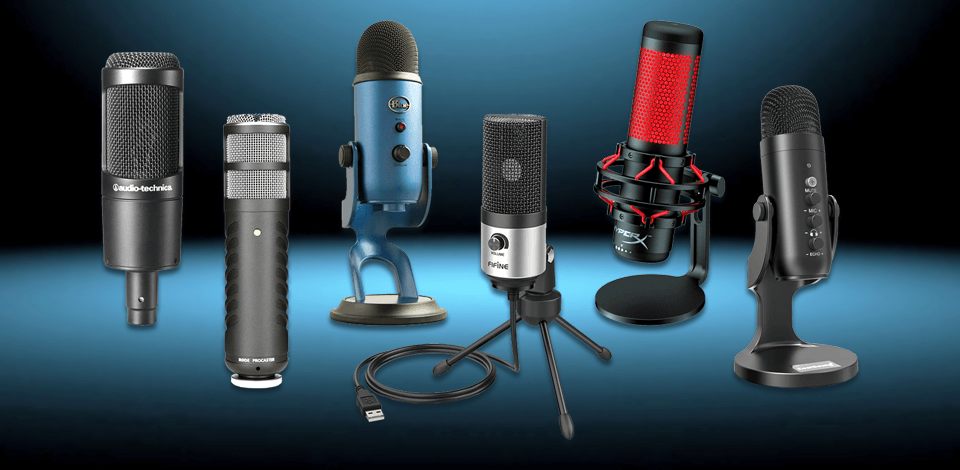
If you are a podcaster and want to improve the quality of your recordings, make sure to find the best microphone for podcasting to improve the sound quality of your episodes.
Listeners may get quickly disappointed with your podcast if your recordings contain background noise. When I was just getting started, I often had to deal with unstable volume levels or muffled voices.
As there are so many options available, I decided to test out the most noteworthy models. When compiling this list, I considered the sound clarity and versatility.
| IMAGE | NAME | FEATURES | |
|---|---|---|---|

|
Rode Procaster
OUR CHOICE
|
CHECK PRICE → | |

|
HyperX QuadCast
VERSATILE
|
CHECK PRICE → | |

|
Logitech Blue Yeti
HIGH-QUALITY
|
CHECK PRICE → |
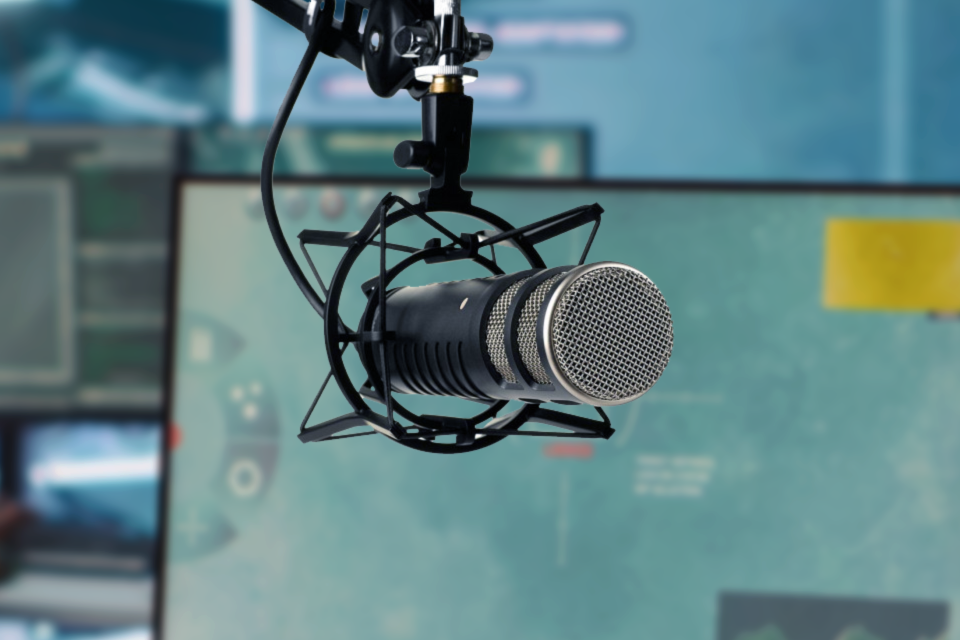
The Rode Procaster has become a great addition to my setup. What makes it the best microphone for podcasting is that it supports professional-quality sound. Its dynamic capsule enables me to capture nuanced vocals while removing distracting background sounds. This noise cancelling mic is perfectly suitable for podcasting, especially if you need to record sound in busy spaces.
The Procaster has an internal pop filter that minimizes plosives. It allows me to speak without worrying about distortion. Another thing that I like about this mic is that it has a solid build. I was able to quickly mount it on a stand, which makes it suitable for extended recording sessions.
Even though the sound quality is quite impressive, this mic is hardly suitable for recording sound in a handheld mode and moving around when speaking.
Specifications:
|
Audio sensitivity
|
56 decibels
|
|
Polar pattern
|
Unidirectional
|
|
Frequency range
|
75Hz - 18kHz
|
|
Connector type
|
XLR
|
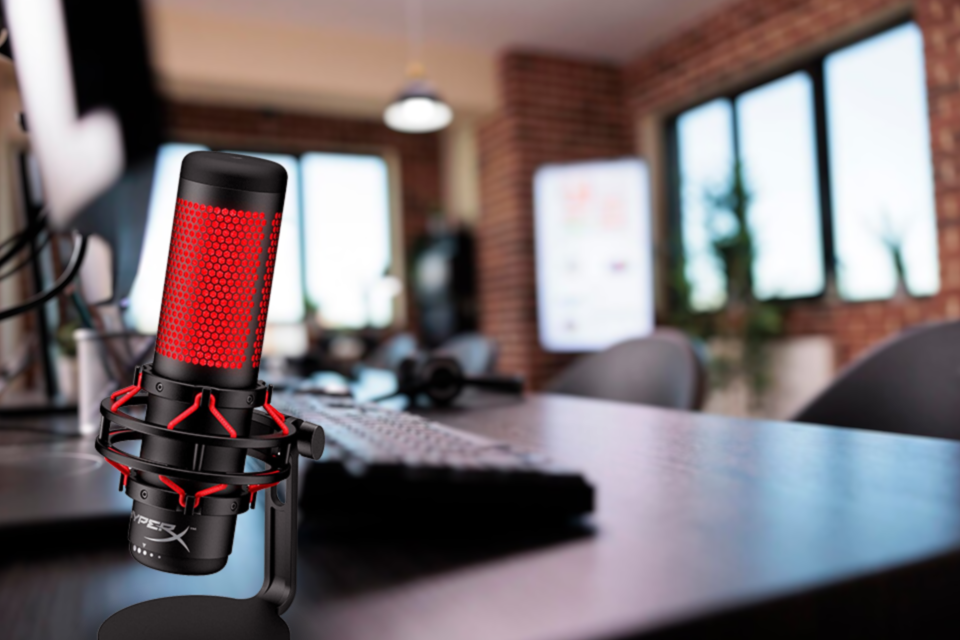
I was impressed by the fact that HyperX QuadCast has so many uses. I can choose the most suitable polar pattern, depending on the recording setup. Whether I need to record a solo podcast or talk with a guest, the mic captures the voices perfectly while minimizing the background noise.
Using QuadCast, you can capture clear voice and produce top-quality recordings. Unlike other microphones for podcasting, it stands out for its noise isolation capabilities, which allow me to use it when working in busy environments. I like its tap-to-mute sensor and the LED status indicator, as it allows me to understand when I am muted.
Even though I liked the bright red lighting at first, it started to distract me later. However, this model is still a great choice, as it supports high sound quality and gain adjustment, making it perfect for podcasters or those who are looking for a streaming microphone.
Specifications:
|
Audio sensitivity
|
-36 decibels
|
|
Polar pattern
|
Cardioid, bidirectional, omnidirectional, stereo
|
|
Frequency range
|
20Hz - 20kHz |
|
Connector type
|
USB |
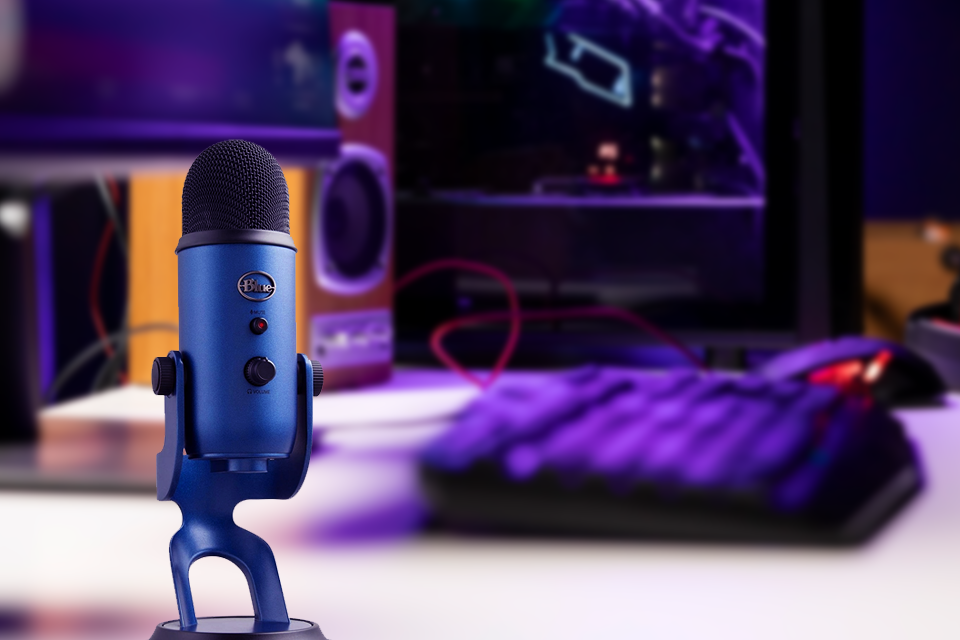
Logitech Blue Yeticaptures stands out for its custom three-capsule array, which enables it to capture professional-quality audio and makes it a worthy alternative to high-end mics. I like the fact that it has its native Blue VO!CE software, which enables me to configure vocal settings and create high-level recordings.
Due to its pickup patterns, I can use the cardioid mode when recording solo podcasts or switch to the omnidirectional mode when recording podcasts with guests. The mic comes with convenient controls, including the mute button and gain settings, which enables me to adjust the settings of my recordings in real time. Its sturdy design means it is best suited for desk use.
The only shortcoming of this microphone for podcast creators is that it weighs too much and may seem too bulky. However, it is an excellent choice for stationary use. If you want to set up a home podcast studio, Blue Yeti is an excellent choice.
Specifications:
|
Audio sensitivity
|
45 decibels
|
|
Polar pattern
|
Unidirectional, bidirectional, omnidirectional
|
|
Frequency range
|
20Hz - 20kHz
|
|
Connector type
|
USB
|
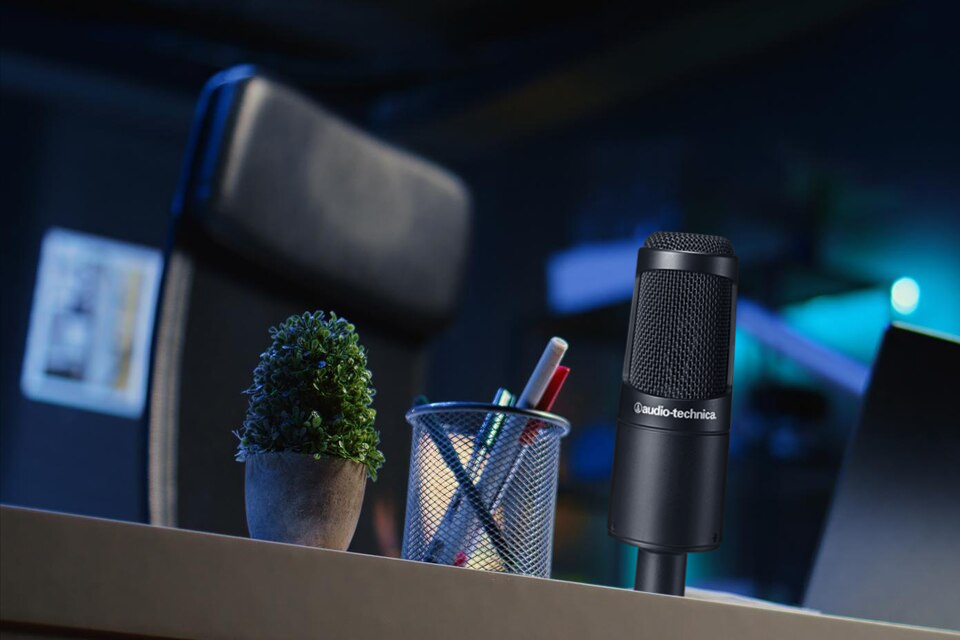
Due to its large diaphragm, the Audio-Technica AT2035 captures natural sound, which makes it suitable for communication and complex audio projects. I like the fact that it supports high sound pressure levels and does not distort the sound thanks to its integrated 10 dB pad.
The cardioid polar pattern excels in isolating my voice and minimizing background noise, which allows me to use this mic outside of the studio. Besides, the high-pass filter allows me to reduce low-frequency noise when I record podcasts.
Even though this is a versatile microphone for podcasting Mac and Windows users mostly utilize it for studio recordings. It relies on phantom power, which makes it less portable. The custom shock mount is great for reducing vibrations. However, the mic comes with low-quality cable, so I had to purchase another one.
Specifications:
|
Audio sensitivity
|
-33 decibels |
|
Polar pattern
|
Cardioid
|
|
Frequency range
|
20Hz - 20kHz
|
|
Connector type
|
XLR
|
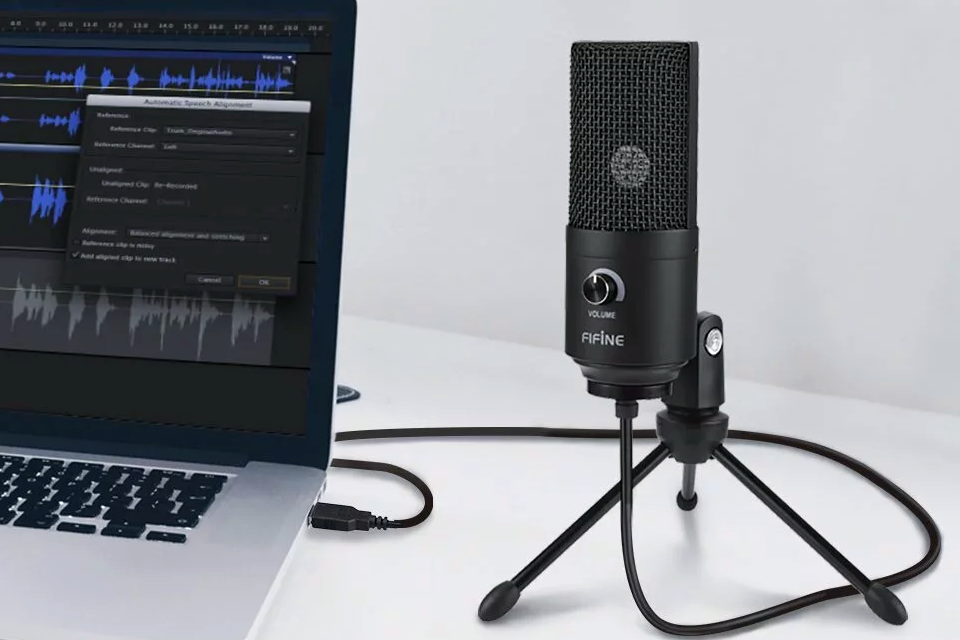
The mic is made of metal, which makes it similar to high-end models. Even though its tripod stand is insufficiently stable, it is suitable for desktop use. The FIFINE K669B stands out for its noise education capabilities. Besides, it captures nuanced sound, which makes it invaluable for those who want to bring their point across when recording podcasts.
Due to its cardioid setup, it can be used for capturing clear vocals, which is why it is often used by the creators of single-host podcasts. The stand is easy to adjust, which allows me to find the right position for the mic and use it comfortably during long recording sessions.
The only shortcoming of this USB microphone for podcasting is that it does not have advanced features like multiple recording modes.
Summing up, the FIFINE K669B does not have the features that can be found in professional models. However, it is suited for those who have a limited budget or just want to find a cheap microphone for YouTube. It delivers consistent performance and is sold at an affordable price.
Specifications:
|
Audio sensitivity
|
78 decibels
|
|
Polar pattern
|
Cardioid
|
|
Frequency range
|
20Hz - 20kHz
|
|
Connector type
|
USB |
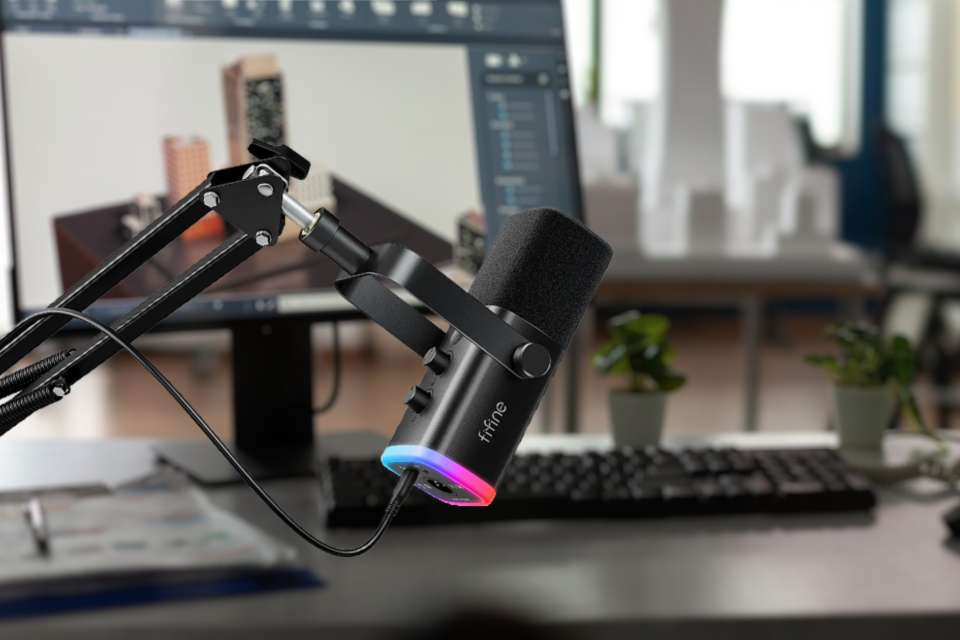
The FIFINE AM8 is an all-in-one solution for podcasters who are looking for a mic that supports USB and XLR connectivity. It supports the 50Hz - 16KHz frequency range, which allows it to capture voices without making them sound unnatural. Its perfectly balanced audio profile ensures that you won’t hear any background noise.
This podcast microphone for beginners supports impressive sound isolation, which explains why many people include such podcast equipment in their home setups. I also like the fact that it supports the USB connection and has the tap-to-mute feature. Due to this, I can easily record audio during live streams or podcast sessions without capturing background noises.
If you like mics with an attention-grabbing design, you will appreciate its RGB lighting. I can switch between light modes with ease to create the right atmosphere. However, I noticed that RGB lighting has limited customization options, which may be disappointing for some.
Specifications:
|
Audio sensitivity
|
-50 decibels
|
|
Polar pattern
|
Unidirectional
|
|
Frequency range
|
50Hz - 16kHz
|
|
Connector type
|
USB, XLR
|
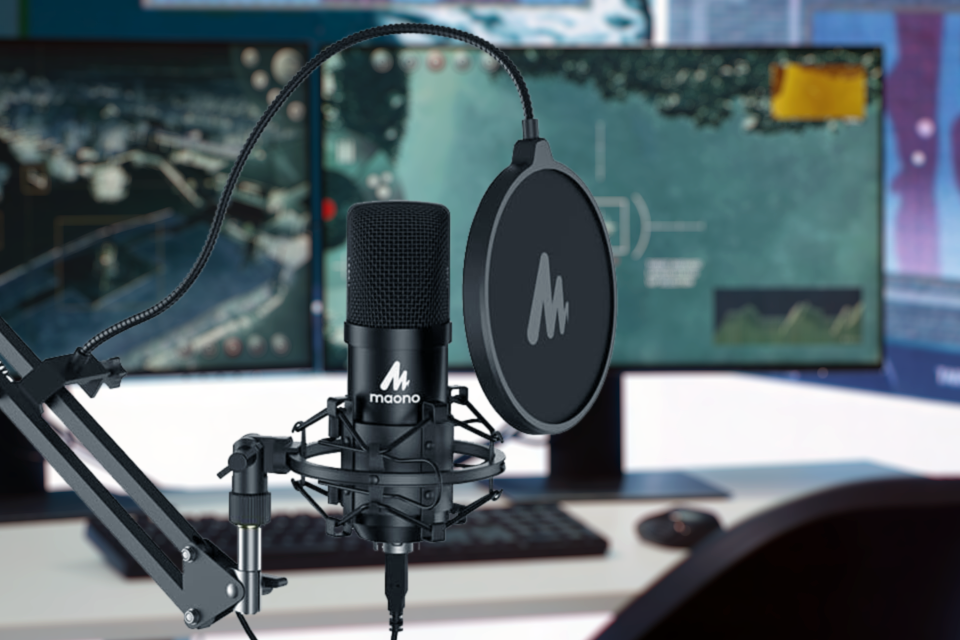
The MAONO AU-A04 supports excellent sound quality and comes at an affordable price, which makes it a great budget microphone for podcasting. It is equipped with pro-level sound chipset and supports a high-resolution sampling rate of 192kHz/24Bit, which allows me to reproduce sound with high precision. I like to use it for vocals.
This plug-and-play mic can be easily connected to other devices via a USB port. Its setup process is quite intuitive, as I do not need to use extra drivers or sound cards. The 16mm condenser transducer makes it perfect for capturing voice recordings due to its impressive bass response.
Even though it supports superb audio quality, I was not happy with its boom arm. It works in a pinch, but it does not feel reliable enough, which makes it less suited for regular use. The mic is shipped with a pop filter and shock mount. However, its design requires improvement as it does not look durable.
Specifications:
|
Audio sensitivity
|
Non-existed
|
|
Polar pattern
|
Unidirectional
|
|
Frequency range
|
30Hz - 16kHz
|
|
Connector type
|
USB
|
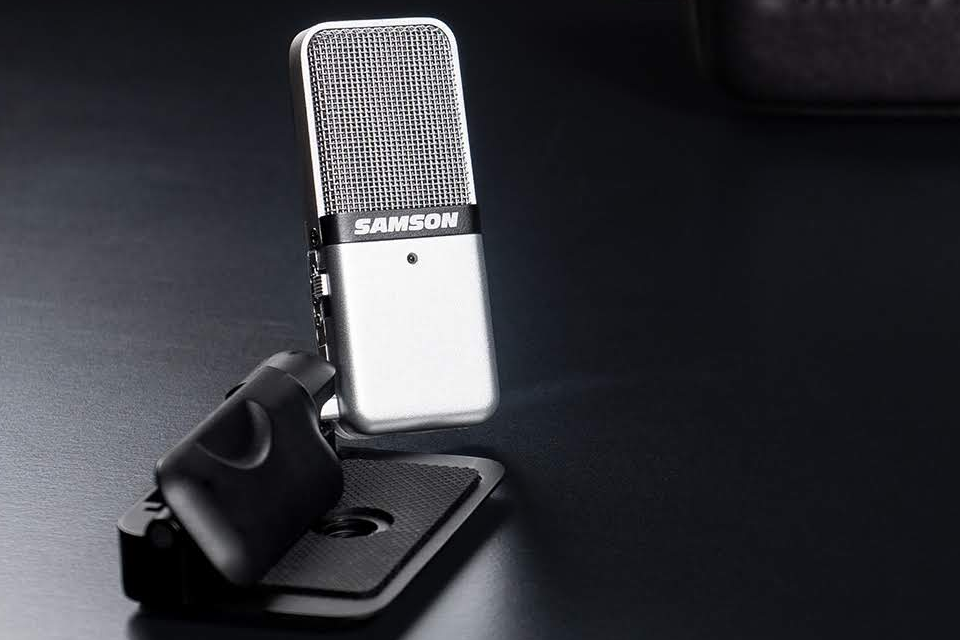
When I started to use Samson Go, I noticed that it has impressive build quality. A cast zinked base and a cushion assembly enable me to use it without capturing vibrations. The mic has an LED indicator, which allows me to understand whether it is turned on.
I like the fact that I can quickly clip it onto my laptop or put it on my desk, which allows me to use it in the office and on the go. However, its monitor clamp can be opened up only up to 1/2 inch. If you use a thicker monitor, you will need to opt for a different mic to mount it.
Despite some limitations, this dynamic microphone for podcasting has great value for the money and comes with an excellent choice of features. It is perfect for anyone who wants to record professional-level podcasts without renting a studio.
Specifications:
|
Audio sensitivity
|
12 dicebels
|
|
Polar pattern
|
Unidirectional
|
|
Frequency range
|
18kHz
|
|
Connector type
|
USB
|
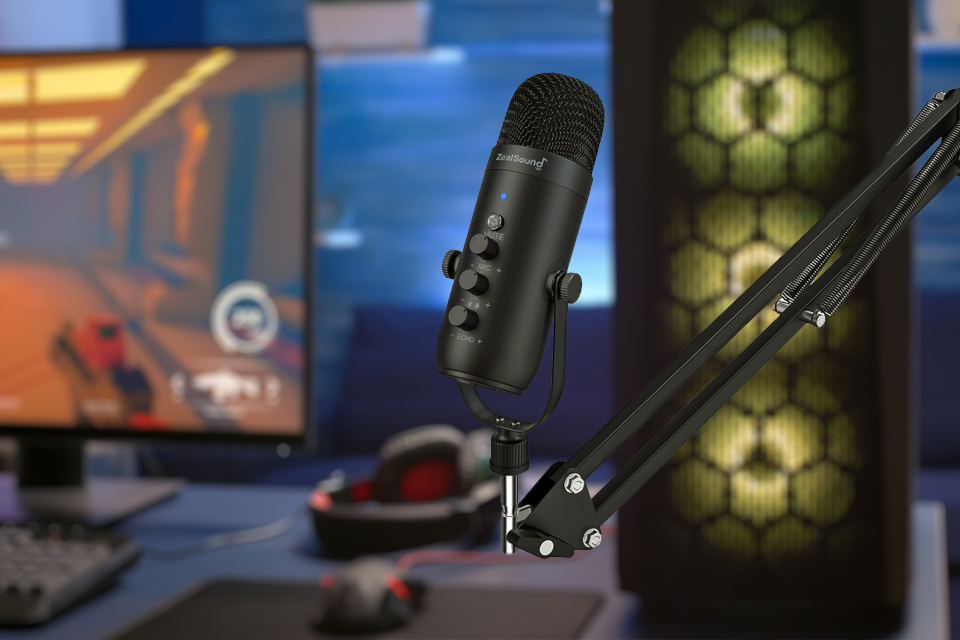
The ZealSound K66 is a plug-and-play mic, that can easily be connected to various devices, including iOS and Android smartphones. It has the echo feature, which makes it more convenient to use. The LED mute reminder helped me avoid embarrassment when recording podcasts.
Thanks to the cardioid polar pattern, I was able to record my voice without any background noise, which makes it similar to the MAONO. However, this model is better as it is fitted with a noise-canceling chipset.
Another thing that I like about this microphone for iPhone podcast creators is that it supports real-time monitoring via its headphone jack. However, I noticed some distortion when recording high-frequency sound, which makes this model hardly suitable for professional use. If you are looking for a mic for podcast creation or want to find a microphone for video recording, it is perfectly suitable for simple tasks.
Specifications:
|
Audio sensitivity
|
45 dicebels
|
|
Polar pattern
|
Cardioid
|
|
Frequency range
|
40 - 18000Hz
|
|
Connector type
|
USB, Type C, iPhone Jack
|
Directional capability. This term describes how well a mic captures sound in various directions. While omnidirectional microphones allow you to record sound from all directions, they capture noise as well. This is why podcasters prefer to use cardioid mics that capture audio only from the front.
Connectivity. USB microphones are the best option for novices who want to find a plug-and-play device. On the contrary, XLR microphones are preferred by seasoned professionals who value their high sound quality and extensive functionality. Even though you will need to buy extra equipment, like audio interfaces and mixers, to use them, they allow you to control the sound with better precision. You may also find a wireless microphone for podcasting to avoid clutter.
Durability. Frequency response is a term that describes the range at which a mic detects sounds. If you want to choose the right podcasting mic for your needs, think about what you want to record. Capturing vocals and guitar requires using a mic that supports a medium or low frequency. Recording bass necessitates using a low-frequency model.
Additional features. It’s recommended to purchase a model with some extra options, as such mics are more convenient to use. Choose a mic with a mute button, RGB lighting, gain controls, or native podcast recording software. Built-in or easy-to-detach pop filters minimize plosive that can negatively impact your recordings. Shock mounts reduce vibrations and make it easier to use a mic in a handheld mode or on the desk to capture clear sound.